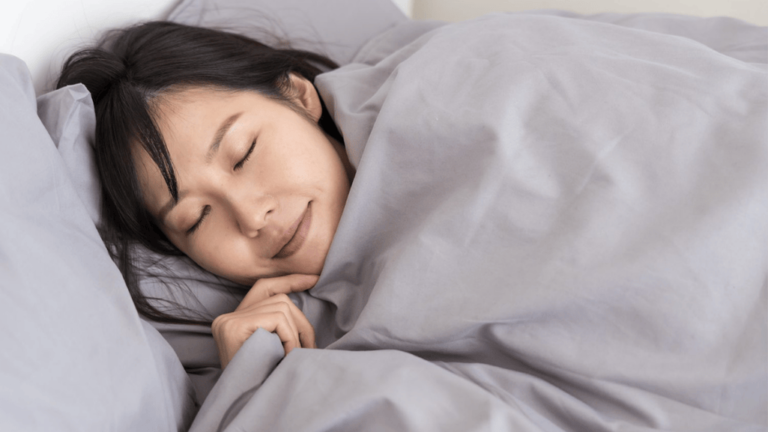Many Americans struggle with sleep, with up to 70 million adults facing issues. Melatonin supplements are popular, but many look for natural options. This has led to a rise in sales of herbal remedies and non-drug sleep solutions.
Alternatives like valerian root and lavender oil offer hope for those with insomnia. About 35% of adults get less than seven hours of sleep each night. This has led to a search for natural ways to sleep better and longer.
Herbal teas, such as chamomile and passionflower, are becoming bedtime rituals. These teas, along with magnesium supplements, may help you fall asleep faster. But remember, herbal supplements aren’t checked by the FDA.
If you have ongoing sleep problems, talk to a doctor or a sleep specialist. They can help you find the right mix of natural and traditional ways to sleep well.
Key Takeaways
- Up to 70 million U.S. adults face sleep-related problems
- Natural sleep supplements sales have increased significantly
- Valerian root and lavender oil show potential in improving sleep quality
- Herbal teas like chamomile and passionflower are popular natural sleep aids
- Magnesium supplements may help reduce time to fall asleep
- Consulting healthcare professionals is recommended for ongoing sleep issues
Understanding Sleep Disorders and the Need for Natural Remedies
Quality sleep is key for our health and happiness. Yet, millions in the U.S. face sleep problems that affect their daily life. This part looks at common sleep disorders and the rise of natural remedies for insomnia treatment.
The Importance of Quality Sleep
Restful sleep is vital for our body and mind to recharge. It keeps our mood stable, boosts our thinking skills, and strengthens our immune system. Without enough sleep, we face health issues and struggle to stay productive.
Common Sleep Issues and Their Impact
Sleep disorders can really change our daily life. Some common ones are:
- Insomnia: Trouble falling or staying asleep
- Sleep apnea: Stops breathing during sleep
- Restless leg syndrome: Unpleasant feelings in the legs at night
These issues can make us tired, moody, and unfocused during the day. They can even lead to serious health problems if they go on too long.
Why Choose Natural Sleep Aids
Many are choosing natural sleep aids instead of medicines. These options usually have fewer side effects and are less likely to lead to addiction. They help by supporting our body’s natural sleep cycle and helping us relax.
| Natural Sleep Aid | Potential Benefits | Considerations |
|---|---|---|
| Melatonin | May reduce sleep latency and regulate sleep-wake cycle | Generally safe for short-term use (3 months or less) |
| Valerian Root | Possible sleep improvement | Well-tolerated for up to 4-6 weeks |
| Chamomile Tea | Promotes relaxation | Minimal side effects |
When looking at non-drug sleep help, it’s key to follow good sleep habits and talk to a doctor for advice. Natural remedies and lifestyle changes can help many people sleep better.
Melatonin Alternatives: Herbal Sleep Remedies
Explore the world of botanical sleep promoters as natural melatonin alternatives. These herbal sleep aids are gentle yet effective for those looking for better rest.
Valerian Root: Nature’s Tranquilizer
Valerian root is more than just a calm-inducing herb. It helps you fall asleep faster and improves sleep quality without making you feel groggy in the morning. Valerian root extract is safe for long-term use, with no reported side effects.
Chamomile Tea: A Soothing Bedtime Ritual
Chamomile tea is known for its calming effects on sleep. It helps you relax and improves your sleep quality. Studies show it reduces anxiety and helps with insomnia, making it a great bedtime ritual.
Passionflower: Calming Properties for Better Sleep
Passionflower extract is a great option for sleep aid. While results vary, many people notice better sleep quality. It’s safe and has shown promise in animal studies.
| Herbal Remedy | Benefits | Usage |
|---|---|---|
| Valerian Root | Reduces time to fall asleep, enhances sleep quality | Extract or supplement form |
| Chamomile Tea | Improves anxiety, insomnia, and sleep quality | Brewed as a tea before bedtime |
| Passionflower | Promotes sleep quality and efficiency | Tea or extract form |
These herbal sleep remedies offer a natural alternative to melatonin. They support better sleep without the risk of becoming dependent. Always talk to a healthcare professional before starting any new supplements.
Essential Minerals and Amino Acids for Sleep
Sleep troubles affect millions of Americans, with over 35% not getting the recommended seven hours nightly. Natural remedies can offer relief without the side effects of prescription drugs. Let’s explore some key minerals and amino acids that support better sleep.
Magnesium supplements are key for good sleep. Nearly 52% of Americans lack enough magnesium. This mineral helps make melatonin and relax muscles. For older adults with insomnia, magnesium can be very helpful.
Glycine is an amino acid that helps you sleep better. It lowers body temperature and improves sleep quality without making you feel sleepy during the day. Tryptophan is another natural sleep booster. It helps make serotonin and melatonin, important hormones for sleep.
Tryptophan is found in foods like turkey, milk, and nuts. Eating these before bed may help you sleep better. Some studies show that taking magnesium with melatonin and vitamin B can help treat insomnia.
| Supplement | Starting Dose | Benefits |
|---|---|---|
| Magnesium | 250mg | Regulates melatonin, relaxes muscles |
| Glycine | 3g | Lowers body temperature, improves sleep quality |
| Tryptophan | Found in foods | Produces serotonin and melatonin |
While these natural sleep aids can be effective, talk to a healthcare professional before starting any new supplements. A balanced approach that includes good nutrition, exercise, and sleep habits is key to getting restful sleep.
Aromatherapy and Essential Oils for Sleep Enhancement
Aromatherapy with essential oils is becoming a popular way to help with sleep. Sleep-enhancing botanicals are a gentle way to address sleep problems without side effects.
Lavender: The Classic Sleep-Inducing Scent
Lavender aromatherapy is a top choice for better sleep. Research shows that smelling lavender oil before bed can make sleep better for people with or without insomnia. It calms the heart rate and lowers blood pressure, making it easier to fall asleep.
Other Beneficial Essential Oils for Sleep
But lavender isn’t the only oil that helps with sleep:
- Chamomile: Known for its calming effects
- Valerian: May raise GABA levels, improving sleep quality
- Bergamot: Offers stress-reducing properties
Methods of Using Aromatherapy for Sleep
Here are ways to use these sleep-helping plants:
- Use a diffuser to spread the scent in your bedroom
- Apply diluted oils to your pillow or bedding
- Add a few drops to a warm bath before bed
- Use aromatherapy massage oils for relaxation
Remember, essential oils are for outside use only. Never take them by mouth. With regular use, aromatherapy can be a key part of your sleep routine, leading to better nights of sleep.
Lifestyle Changes to Support Natural Sleep Aids
Creating healthy sleep habits is more than just taking supplements. Simple lifestyle changes can boost the power of natural sleep aids and better your sleep quality.
Creating an Optimal Sleep Environment
Your bedroom is key to good sleep. Keep it cool, dark, and quiet. Aim for a temperature of 65 to 72 degrees Fahrenheit. Use blackout curtains or an eye mask for light, and earplugs for noise.
Developing a Consistent Sleep Schedule
Stick to a regular sleep schedule. Go to bed and wake up at the same time every day, even on weekends. This helps your body clock and improves sleep quality.
Dietary Considerations for Better Sleep
What you eat and drink affects your sleep. Tart cherry juice, full of melatonin, can help sleep quality before bed. But avoid caffeine and alcohol near bedtime as they can mess with your sleep.
“Regular exercise can deepen sleep in young adults with or without sleep disorders.”
Adding relaxation techniques to your bedtime routine can greatly improve sleep. Try meditation, deep breathing, or gentle yoga before sleep. These can calm your mind and get your body ready for rest. It might take a few weeks to get the hang of it, but it’s worth it.
Focus on sleep hygiene and these lifestyle changes to support natural sleep aids. Being consistent is crucial for better sleep habits. Stick with these changes for the best outcomes.
Conclusion
Many adults struggle with sleep, with one-third facing insomnia. Luckily, natural sleep remedies can help without the need for prescription drugs. These include sleep-promoting herbs and lifestyle changes for a gentler way to better sleep.
Studies show that natural options work well. CBD is seen as a safe way to help with sleep problems. Herbal teas like chamomile and valerian root can also help relax and ease stress. Plus, tart cherry juice can increase melatonin levels, leading to better sleep.
Minerals are key too. Magnesium, found in nuts and leafy greens, helps with sleep. For leg pain, using a leg elevated pillow can improve blood flow and reduce swelling, making sleep more comfortable. These natural methods, along with good sleep habits, form a solid plan for better sleep.
While natural sleep remedies are promising, it’s important to be careful. Always talk to a doctor before trying new sleep aids, especially if you have ongoing sleep issues. By trying these holistic approaches, many people find they get the restful sleep they need for good health and happiness.














